Business Loans for Doctors and Medical Practices
Lets Get Started
With so many lenders, loan programs, and financing options available, it can be challenging to determine the best course of action for your medical business. In this comprehensive guide, we will explore various financing options for medical professionals, including Small Business Administration (SBA) loans, term loans, equipment financing, and more, to help you make an informed decision and secure the funding you need.
Understanding the Need for Medical Practice Loans: Challenges and Opportunities
Like any other business, medical practices require working capital for various purposes. However, doctors and medical practitioners often face unique challenges that make medical practice loans a vital resource for establishing and growing their businesses. These challenges include:
High Startup Costs
Starting a new medical practice can be a costly endeavor. Expenses such as office space, medical equipment, staff salaries, and insurance can quickly add up, making it difficult for new practitioners to launch their businesses without access to significant capital. Medical practice loans can help bridge the gap by providing the necessary funds to cover these startup costs and get the practice up and running.
Expensive Medical Equipment
Medical equipment, ranging from basic examination tools to advanced diagnostic and treatment machines, can be prohibitively expensive. Medical practice loans tailored specifically for equipment financing can help healthcare professionals acquire the latest, most advanced equipment to provide the best possible care to their patients.
Fluctuating Earning Potential
The earning potential of a medical practice can vary based on factors such as patient volume, insurance reimbursement rates, and the type of services offered. This unpredictability can create cash flow challenges, making it difficult for medical professionals to plan for long-term growth or cover unexpected expenses. Medical practice loans can provide the necessary working capital to manage these fluctuations and maintain a stable financial footing.
Regulatory and Compliance Requirements
Medical practices must adhere to strict regulatory and compliance requirements, which can result in additional costs and administrative burdens. Medical practice loans can help practitioners invest in the necessary infrastructure, technology, and staff training to maintain compliance and avoid costly penalties or legal issues.
Expanding and Modernizing the Practice
As a medical practice grows, practitioners may need to expand their office space, hire additional staff, or invest in new technology to meet increasing patient demand. Medical practice loans can provide the necessary funding to facilitate these expansions and ensure the practice continues to thrive.
Practice Acquisitions and Mergers
Medical professionals may consider acquiring or merging with an existing practice to expand their services or enter new markets. Medical practice loans can help finance these acquisitions, providing the necessary funds to complete the transaction and seamlessly integrate the new practice into the existing business.
Marketing and Patient Acquisition
Attracting and retaining patients is crucial to the success of any medical practice. Medical practice loans can help practitioners invest in marketing initiatives, such as digital advertising, social media campaigns, or patient referral programs, to increase visibility and attract new patients.
Types of Financing for Medical Practices
Several financing options are available for doctors and medical practices, each with its advantages and drawbacks. Some of the most popular options include:
Small Business Administration (SBA) Loans
The Small Business Administration (SBA) offers various loan programs to support small businesses, including medical practices. SBA loans, such as the SBA 7(a) program, provide long repayment terms, low-interest rates, and high loan amounts, making them an attractive option for medical professionals. These loans can be used for various purposes, including purchasing equipment, real estate, and working capital. However, the application process can be lengthy, and borrowers must meet stringent creditworthiness criteria.
Term Loans
Term loans are a popular choice for medical practitioners seeking a lump sum of cash with a fixed repayment schedule. Traditional banks, online lenders, and alternative funders offer these loans, with varying interest rates, repayment terms, and eligibility requirements. Term loans can be used for a wide range of purposes, from purchasing commercial real estate to funding a new location or existing practice expansion.
Business Line of Credit
A business line of credit provides medical professionals with access to a revolving credit facility, allowing them to draw funds as needed and pay interest only on the amount borrowed. This type of financing is ideal for managing short-term cash flow needs or unexpected expenses. Business lines of credit are available from traditional banks, online lenders, and alternative providers, with varying interest rates and credit limits based on the borrower’s credit history and financial stability.
Equipment Financing
Medical equipment can be expensive, and many medical practices require specialized equipment such as x-ray machines, ultrasound machines, and diagnostic tools. Equipment financing allows medical professionals to borrow funds specifically for purchasing new equipment or upgrading existing equipment, often with repayment terms aligned with the equipment’s useful life. This type of financing can be obtained through equipment manufacturers, traditional banks, or alternative lenders, with interest rates and terms depending on the borrower’s creditworthiness and the equipment’s value.
Merchant Cash Advance
Merchant cash advances (MCAs) serve as a final option for medical practices seeking financing. With an MCA, medical professionals can receive a lump sum of cash upfront, repaying* it through a percentage of their daily sales. MCAs offer fast access to funds without requiring real estate collateral or a perfect credit score. This financing option can be suitable for medical practices experiencing temporary cash flow issues or needing quick capital for urgent expenses.
Factors to Consider When Selecting Medical Practice Business Loans
While there are a variety of options on types of financing that we detailed above, for this section we will focus on loans. When choosing the best medical practice loan, small business owners should consider several factors:
Interest Rates: The interest rate on your loan will significantly impact your monthly payments and the overall cost of borrowing. Be sure to compare interest rates from multiple lenders to ensure you’re getting the best deal possible. Keep in mind that your credit score, credit history, and the type of financing you choose will all affect the interest rates available to you.
Repayment Terms: The length of your repayment term will also impact your monthly payments and the total cost of the loan. Consider the purpose of the loan and the expected return on investment when selecting the appropriate repayment term for your medical practice loan.
Loan Amounts: Medical practices may require different loan amounts depending on their specific needs. Ensure that the lender you choose can provide the funding you need, whether it’s for purchasing equipment, expanding your practice, or managing cash flow.
Application Process: The application process for medical practice loans can vary significantly between lenders, with some requiring extensive documentation and lengthy processing times. Consider the urgency of your financing needs and the time you’re willing to invest in the application process when selecting a lender.
Eligibility Requirements: Different lenders and loan programs have varying eligibility criteria, including credit score requirements, years in business, and revenue thresholds. Be sure to review these requirements before applying for a loan to ensure you’re eligible and improve your chances of approval.
Down Payment: Some types of financing, such as commercial real estate loans or equipment financing, may require a down payment. Be prepared to provide a down payment if necessary and consider how this may impact your overall financing needs and cash flow.
Funding Options: Medical professionals have unique funding needs, such as purchasing expensive equipment, expanding their practices, or hiring additional staff. Be sure to select a loan program that allows for flexibility in using the funds to best support your practice’s growth and success.
Providers: When choosing a lender, consider their reputation, customer service, and expertise in providing loans for medical practices. Some lenders, such as Bank of America, specialize in providing financing for healthcare professionals, while others may have more general small business loan offerings.
Tips for Securing the Best Medical Practice Loan
Review Your Credit History: Your credit score and credit history will play a significant role in determining the interest rates and terms available to you. Be sure to review your credit report for any inaccuracies or negative information and take steps to improve your credit score if necessary.
Prepare a Comprehensive Business Plan: Lenders will want to see a well-prepared business plan outlining your medical practice’s goals, strategies, and financial projections. A strong business plan demonstrates your commitment to the success of your practice and can improve your chances of securing favorable loan terms.
Gather Necessary Documentation: The loan application process typically requires various documentation, such as tax returns, financial statements, and proof of licensure. Be sure to gather all required documentation before applying for a loan to streamline the application process and improve your chances of approval.
Research Lenders: Research various lenders and loan programs to determine which best align with your financing needs and eligibility. Don’t hesitate to shop around and compare interest rates, terms, and eligibility requirements from multiple lenders to ensure you’re getting the best medical practice loan for your needs.
Seek Expert Advice: Consult with financial advisors, accountants, or other medical professionals who have experience securing business loans for medical practices. Their insights and guidance can be invaluable in navigating the complex world of medical practice financing.
Final Thoughts
Securing a business loan for your medical practice can be a critical step in establishing, growing, or maintaining your practice. By understanding the various financing options available, carefully considering your specific needs, and following best practices for securing the best medical practice loan, you can confidently navigate the lending landscape and secure the funds you need to ensure the success of your medical practice.
*Repayment in this context describes the process of repurchasing a merchant cash advance. It does not describe the process of repaying a loan. MCAs are legally distinct from loan products.





